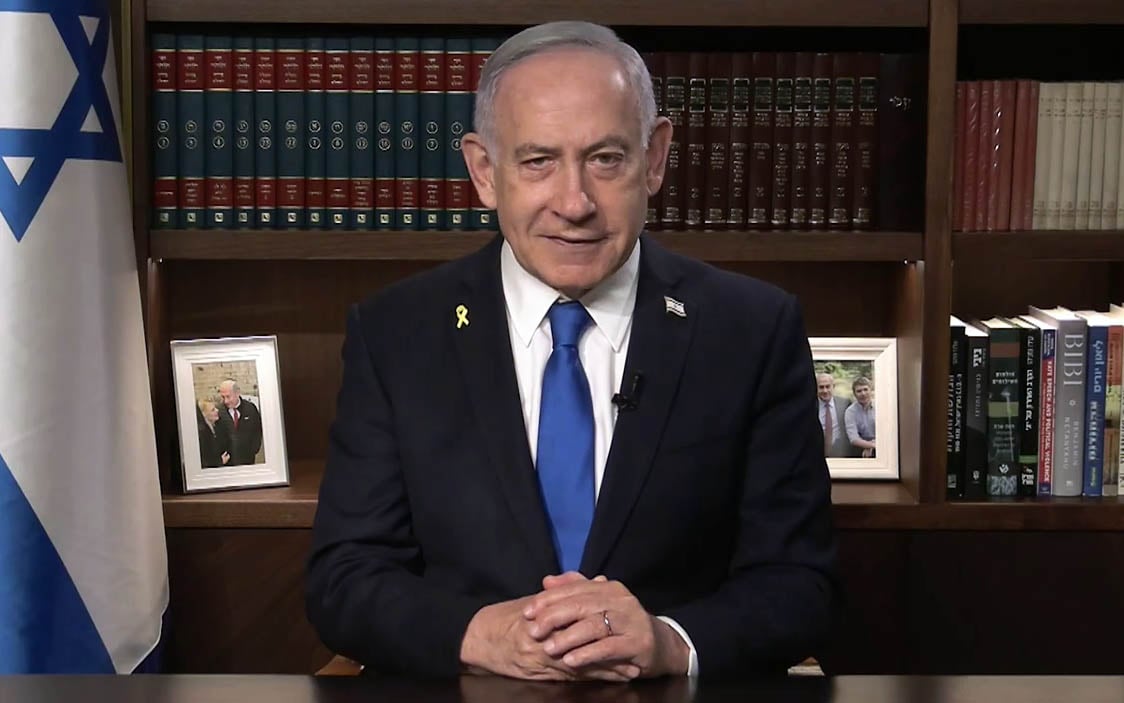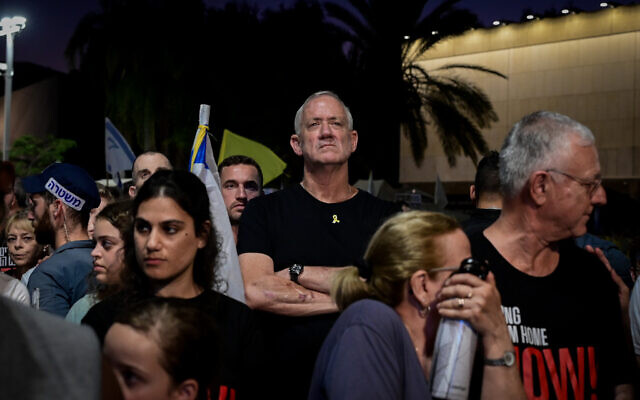


Prime Minister Benjamin Netanyahu warned on Wednesday that the recent Western recognition of an independent Palestinian state would not “obligate” Israel into allowing it to become a reality.
“The shameful capitulation of some leaders to Palestinian terror does not obligate Israel in any way,” Netanyahu’s office said in a statement published ahead of his departure to New York for the United Nations General Assembly. “There will be no Palestinian state.”
The matter of a Palestinian state, and the announcements of recognition in recent days from countries including the United Kingdom, France, Canada, and Portugal, is expected to dominate Netanyahu’s meetings with other leaders on the sidelines of the UN General Assembly, as well as his meeting with US President Donald Trump in Washington on Monday.
On Sunday, after the UK, Canada, and Australia announced that they would recognize an independent Palestine, Netanyahu accused their leaders of “handing a huge reward to terror” but said that Israel would respond to the move only upon his return from the US.
One response that members of his coalition are pushing for is for Israel to annex parts of the West Bank, and in particular, the Jordan Valley.
However, a senior Israeli official told The Times of Israel earlier this week that the Trump administration has privately cautioned Israel against taking such a step in response to Western recognition of a Palestinian state.
Jerusalem did not feel that the warnings marked “an end to the discussion,” the official said, and Netanyahu was planning to discuss the matter with Trump at the White House next week.
To date, the Trump administration has avoided taking a public stance regarding potential Israeli annexation of the West Bank and has argued that Western countries are to blame for Jerusalem considering the step due to their decisions to recognize a Palestinian state.
Netanyahu’s departure for the UN was not uneventful, as hundreds of protesters gathered at Ben Gurion Airport on Wednesday to see him off.
Rallying both against Netanyahu and his government, and for a deal to bring the remaining 48 hostages home from Gaza, protesters waved Israeli flags and yellow banners at the entrance to the airport.
Others held images of the hostages and signs calling for Trump to pressure Netanyahu into ending the war in Gaza.
Other signs railed against Netanyahu’s nomination of David Zini as head of the Shin Bet security service, amid concerns from activists that he will act as a rubber stamp for the premier.
Several demonstrators wearing orange jumpsuits adorned with signs calling for Netanyahu to be jailed, posed alongside others dressed as Gulf sheikhs waving around wads of cash, a reference to the allegations of covert dealings between members of Netanyahu’s office and Qatar.
As the premier departed for New York to argue against the recognition of a Palestinian state, his stance was backed up by a voice from across the political aisle — National Unity party head Benny Gantz, in an op-ed published by the New York Times.
In the op-ed, Gantz suggested that the trending recognition of Palestinian statehood in the international community may actually be aimed at repudiating Netanyahu, despite actually being “a rejection of Israel’s bipartisan security consensus.”
Gantz, a former IDF chief and defense minister, accused foreign decision-makers of viewing Israel’s policies solely through the lens of whether or not it would benefit Netanyahu, rather than Israel’s national security needs. “This view is mistaken and counterproductive to global stability, regional normalization and Israel’s own security,” he wrote.
According to Gantz, who has shown more willingness to work with Netanyahu than many others in the opposition, even joining his war cabinet for a time, “opposition to the recognition of Palestinian statehood stands at the heart of [the Israeli] consensus,” a stance that he maintains is “rooted in the hard realities of our region.”
Pointing to what happened in Gaza since Israel withdrew from the territory in 2005, he argued that the Palestinian Authority, led by PA President Mahmoud Abbas, was not up to the task of state-building, accusing it of inciting violence and glorifying terror.
“Any path forward for broader Palestinian civil autonomy must first incorporate a proven long-term track record of accountable governance, comprehensive de-radicalization reforms and a successful crackdown on terror elements targeting Israelis,” he wrote.
The former defense minister recalled being dumbfounded during a conversation with Spanish Prime Minister Pedro Sanchez over his “conceptual lack of understanding” of the difference between the challenges their countries face in dealing with terror.
“There is no symmetry between defending one’s country against sporadically active terror cells in Europe and a terror pseudostate that commands territory, resources and military arsenals, backed by a country like Iran that openly declares its ambition to annihilate us and fueled by a radical Islamist ideological backbone,” Gantz wrote.
The episode, he said, “reinforced my understanding of the extent to which Israel’s security challenges are severely underestimated by the international community.”
According to Gantz, the majority of Israelis oppose the recognition of a Palestinian state, not because of “personal politics,” but because they are “contending with the challenges of a new era” in a post-October 7 world.
Gantz also used the platform to reiterate his stances in support of a long-term Israeli military presence inside Gaza along its perimeter, to keep Hamas from regrouping, and said “Israel must prepare to assume formal control over the strategic Jordan Valley in the West Bank,” claiming that both are needed to prevent a recurrence of the October 7, 2023, Hamas-led attack.
Jacob Magid contributed to this report.



